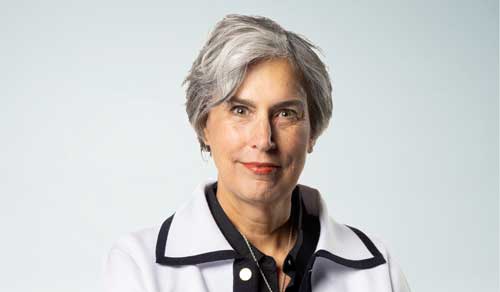To describe underwriters’ COVID-19 experience so far, we might compare it to a patient being weighed at a doctor’s office.
The patient steps on a mechanical physician scale, causing immediate disruption. In response, the nurse first adjusts the large sliding weight at the bottom bar, and then moves the small weight on the top bar carefully until the end of the balance beam is as close to the equilibrium as possible.
Underwriters’ response to the crisis worked, and continues to work, like patient weighing – an initial big adjustment followed by more precise and careful calibration as we learn more about the virus and its short- and long-term implications.
At the start of the crisis, RGA published updated COVID-19 underwriting guidelines on a weekly basis. As more information and data have come to light, we have settled into more established rules, cautiously calibrating the right underwriting guidance to help our clients manage through these challenging times. Although more precise, these calibrations require ongoing, proactive management and are crucial for ultimate success.
As with the physician scale, the challenge is to achieve balance and keep business flowing while maintaining responsible risk management. With stay-at-home orders in place across the globe, and people reluctant to attend the required screenings, medical evidence that underwriters used to rely on has become limited. To address the lack of resources, underwriters need to consider alternatives for traditional requirements. Furthermore, insurance sales have been driven to online distribution channels, affecting common underwriting management practices for monitoring business.
Underwriters are experts in risk assessment and now, more than ever, we need to focus on being smart about the risks we take on and how we weigh them. We need to evaluate the underlying risks and how they are presented: Are they warranted risks to take or are they purely driven by the crisis? If the latter, we need to be more careful. Making certain concessions is justified, but we must balance sales in the short term with stability over time.
From a medical point of view, current morbidity and mortality outcomes need to be taken into consideration, as well as potential long-term effects of the infection that may arise. Still, much remains unknown about the virus, so we can’t be overly prescriptive at this point but must continue to gather information and be open to new possibilities.
From an economic perspective, we might look to the global financial crisis of 2007-09 for guidance, but some lessons won’t apply. The challenge of COVID-19 is different and more far-reaching – a combination of public health, financial, environmental, and geopolitical crises. Again, balance is key as we turn to those past learnings alongside ongoing adaptation to a flood of new findings.
Experts say that the coronavirus pandemic may create a “new norm” for our society. While this remains a speculation, underwriting practices should continue to be fine-tuned with the future in mind – some changes might be temporary, but some might remain with us post-crisis. On balance, insurance is a long-term business, and we should weigh our actions accordingly.
Summary
As we continue to learn more about the pandemic and its consequences, it’s important for underwriters to broadly consider risk. The need to apply existing expertise while being open to new opportunities – and ready to learn and adjust – is now stronger than ever.
RGA’s underwriting services remain open for business globally and we are maintaining our usual high standards of client support. We continue to proactively seek out solutions that will enable us to collectively manage through these challenging times.



